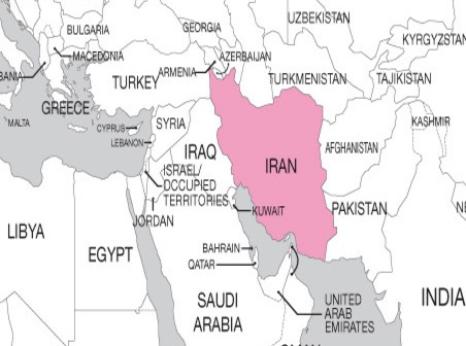Iran: 26 People Risk Execution In Relation To Protests

Thousands have been arrested and indicted in the context of nationwide protests, raising fears that many more people could face the death penalty in connection to protests. Consistent with a long-standing policy of concealing human rights violations and seeking to dehumanize victims, Iranian authorities have not disclosed the identifies of those sentenced to death. In the course of its ongoing investigations, Amnesty International obtained information confirming the names of 10 individuals sentenced to death. The identity of the 11th person, sentenced to death in a group trial of 16 individuals before a Revolutionary Court in Alborz province, remains unknown. Based on publicly available information clarifying the sentences against a number of defendants in the case, he could be one of the following people: Reza Arya, Mehdi Mohammadi, Shayan Charani, Mohammad Amin Akhlaghi, Reza Shaker Zavardahi, Javad Zargaran or Behrad Ali Kenari.
On 8 December, the authorities executed protester, Mohsen Shekari, after convicting him in a grossly unfair trial of “enmity against God” less than three months after his arrest. On 12 December, authorities publicly executed another young man, Majidreza Rahanvard, in Mashahd, Khorasan-e Razavi province, after convicting him of “enmity against God” in a grossly unfair trial. He was executed less than two weeks after one court session on 29 November 2022.
The trials against individuals sentenced to death in connection with the nationwide protests have borne no resemblance to meaningful judicial proceedings. Authorities have fast-tracked the cases with some convicted only days after their trials started. Iranian authorities have also sentenced at least four individuals to death for offences such as vandalism, assault, and arson, in a further serious violation of international law, under which capital crimes must be limited to “the most serious crimes” involving intentional killing. Amnesty International has also documented serious allegations of torture and other ill-treatment against at least 10 individuals at risk of the death penalty. For instance, the authorities subjected Saman Seydi (Yasin) to severe beatings and forced exposure to extreme cold to extract forced “confessions” according to information gathered by Amnesty International. In the case of medical doctor Hamid Ghare-Hasanlou, who was sentenced to death for “corruption on earth” on 5 December less than a week after undergoing an unfair trial; informed sources told Amnesty international that the authorities repeatedly tortured him to extract his forced “confessions”, leading to his hospitalization with broken ribs, difficulties breathing, and internal bleeding in his lung for which he required three surgeries. During trial, Hamid Ghare-Hasanlou showed the judge his injuries from torture, but no investigation into his allegations has been carried out. Judicial and prosecutorial authorities have relied on torture-tainted “confessions” and other evidence obtained in violation of international law and standards to issue indictments and verdicts. For instance, in the case of Akbar Ghafari, arrested after sheltering protesters at his sister’s home in Tehran, according to a prisoner detained alongside him, authorities tortured him to sign a forced statement, which he was unable to read and later discovered falsely incriminated him in a killing. Authorities also coerced Hamid Ghare-Hasanlou’s wife to make incriminating statements against him which were used in court to convict him. She retracted her “confessions” in court. Authorities have denied the right of individuals they have prosecuted for capital offences to access lawyers of their choosing during the investigation phase and at trial, and have barred independently appointed lawyers from representing clients in court and accessing casefiles and verdicts. The rights to presumption of innocence has also been repeatedly violated by the authorities with state media airing forced “confessions” of several individuals at risk of execution prior to trial. In the case of Amir Nasr Azadani, a footballer charged with the capital offence of “armed rebellion against the state”, on 11 December 2022 in an interview with state media, the justice department head of Esfahan pronounced him guilty prior to trial by saying “the accused has unequivocally confessed to his criminal actions” and “there exists sufficient evidence establishing his participation in the armed group” while his trial was ongoing.
For detailed information about the cases of all individuals named on page one of this Urgent Action, see here.